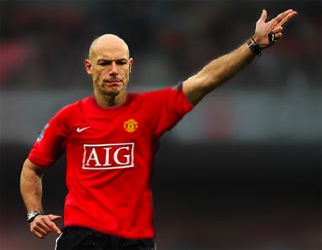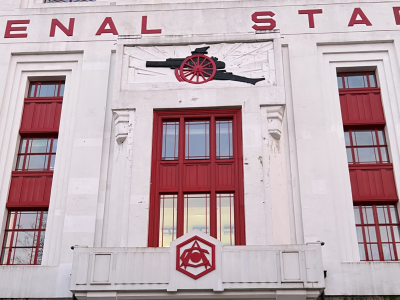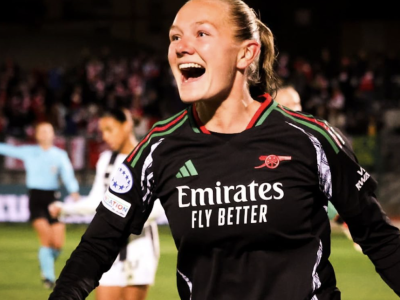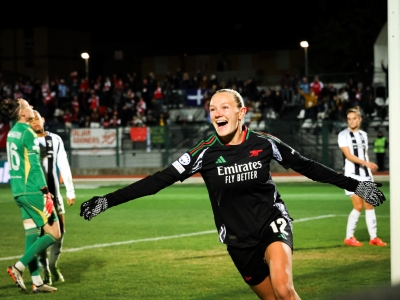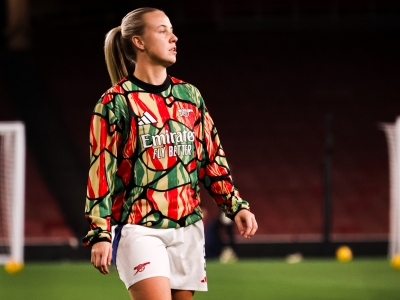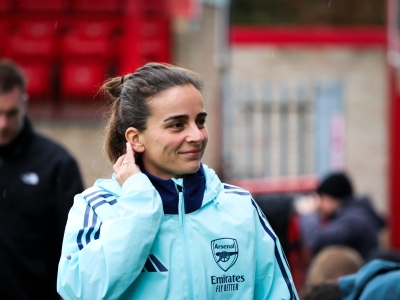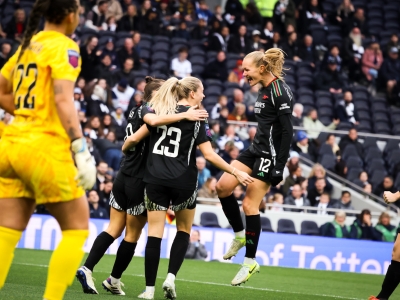I have to say that I entirely agree with Joe Fitzpatrick’s sentiments in his recent piece. The one indirect factor which wasn't mentioned was BSB Sky's obvious conflict of interests during a decade when they had a financial interest in Manchester United. There is a fine line, sometimes, between reporting the news and attempting to make it. In selectively highlighting some incidents (playing them on loop) and burying others, they have been responsible for more than one significant suspension in their time – or not, as the case may be.
In my estimation, there is no convincing argument not to use technology; which has become integral to other sports, against which some have also had serious allegations either made or proven.
We shouldn’t forget that Szczesny ought to have been dismissed early on in the Carling Cup Final, nor the “tackles” made recently by Messrs Carragher and Rafael in their meeting at Anfield. On that note, I have long blamed referees’ failure to act either expediently and/or proportionately as the catalyst for injuries such as those sustained by Eduardo and Aaron Ramsey.
In my opinion, the crux of this matter is that any suggestion of foul play on the part of English football’s most powerful invertebrates strikes at the core of the supposed values and beliefs apparently attributed to this country. If you have any doubt as to the abandonment of the Corinthian spirit where football here is concerned, make your way down to your local pitches on a Saturday or Sunday morning. It is in environments such as these that referees are often physically or verbally threatened (the latter, we must recognise occurring as a matter of course within the higher echelons of the game). Given the fine margins and huge financial incentives at stake at the very highest level, it is legitimate to reflect upon the wisdom of the Football Association and Premier League in refusing to indemnify themselves so far as is possible with relevant technology.
No doubt the Football Association and Premier League would argue that the laws of the game must apply equally at all levels of the sport, right down to the so–called “grass roots” collective; battling hangovers and muddy pitches simply to take part in and fulfil their passion. Clearly, there is no scope for a universal embracing of technology; however, the argument fails on a basic level – since the professional game serves as all too frequent witness to inconsistent, dreadful (or dishonest?) decisions. Unequivocally, the laws of the game are not being applied consistently or equally – and so long as this is the case, conspiracy theorists will question Howard Webb, Phil Dowd and Anthony Taylor, among others.
Prior to referees being given the responsibility on a professional basis, there was much discussion as to whether this change would engender “better” decisions. To my mind, this alone does not guarantee consistency; but what it does provide is the opportunity for better qualified, fitter referees who are able to keep up with the ever increasing pace of the game. Employing technology would be a further move in the right direction. This should also be used retrospectively, if necessary, to ensure appropriate punishments are applied – but I cannot envisage a situation where games would become null and void as a result of a bad decision and a replay ordered. Perhaps in hindsight, France might have opted for such a possibility after the last World Cup tournament; following qualification secured by nefarious means. (This was by no means the only such example of flagrant cheating in recent memory).
There is one other potential solution which I believe would improve the standards of officiating: effectively, a “league table” of referees, according to performance – to be made public. Utilising this system, at the end of a season, the least effective referees could be “relegated” to officiate only lower league games. Equally, a corresponding number from divisions below could be “promoted” upon consistently good performance. The most high profile games would then be detailed to those referees (and assistants, before we forget) who have proved themselves able to cope with the demands of such occasions. One only has to recall the criticism levelled at Mr. Webb after the last World Cup Final to conclude that his addition to the Honours List was not based upon performance.
The counter argument to this suggestion would almost certainly question who should be responsible for scoring any individual refereeing performance. Former referees might adopt the “union position” when judging erstwhile colleagues and furthermore, what is to prevent these custodians from being open to “the dark arts” of the game?
In a country shamed by match fixing scandals over a disgraceful period, Pierluigi Collina was universally regarded as peerless. He is still involved in the decision making processes which affect football today and would almost certainly have allowed Andrey Arshavin’s goal against Sunderland to have stood. Using the league table model, the first few seasons could focus upon the obvious mistakes, such as the example(s) against Sunderland; until the best retiring referees were identified to convene a committee to oversee the intricacies of further contentious decisions made. Clearly, such a body would have to maintain its independence, if it were to remain credible.
As for their impeachability, whilst there are no guarantees, it is hoped they would have proved themselves over a period of time as being at least competent. Hopefully, in light of such established review, sufficient deterrent would be made to current officials to avoid the temptation to become the stars of the show. Currently, that is not the case and the Football Association and Premier League are guilty of allowing such faux celebrity to continue.
As Sian Massey, perhaps more than any other current top flight official will attest, the job is not necessarily an easy one. Ask Anders Frisk, who mysteriously retired after a controversial Champions League quarter final match between Barcelona and Chelsea. The task is made appreciably more difficult by the likes of Alex Ferguson, who has never been afraid to give his opinion; also by teams playing in their image – I recall Tony Adams’ accusations towards David Elleray in a televised experiment where the officials wore microphones, several years ago. (David Elleray himself referred in his autobiography to the awarding of a contentious spot kick in the 1994 FA Cup Final – coincidentally (?) in favour of Manchester United. He admitted to giving the decision without proper thought and that it was allowed to stand, despite his realisation that he had made an elementary mistake.)
In conclusion, I am reminded of Jens Lehmann’s dismissal in Paris. The referee that night, Terje Hauge admitted that he may have also acted too quickly in brandishing a red card in the 18th minute, reflecting: "I would have liked to have taken a few more seconds before I made a decision. If I'd done that, I could have given a goal and given a yellow card as well."
Had he done that, given that no goalscoring opportunity was denied, I am convinced that Arsenal Football Club would have been crowned European Champions that night. Quite why a referee might feel pressured into a hasty decision I cannot say, but I would have thought that on the biggest stage that he could have allowed himself the time necessary to make a decision with certainty.
This followed one of his colleagues being replaced prior to the game, having been photographed wearing a Barcelona shirt. Whatever the circumstances surrounding that situation, it was ill advised at best. UEFA appeared to protest too much, in refuting any possible wrongdoing by their official after the event. It is perhaps cynical to attribute the outcome in part to an absence of David Dein’s former influence within the game. Whatever the pros and cons of his involvement with the Club, it would be hard to argue that he did not understand the finer machinations across the football landscape. With a continued lack of transparency at the highest level; we as fans can only entrust the upkeep of impartiality to the ruling bodies, if not the media. It is fervently hoped that this trust is not misplaced.

